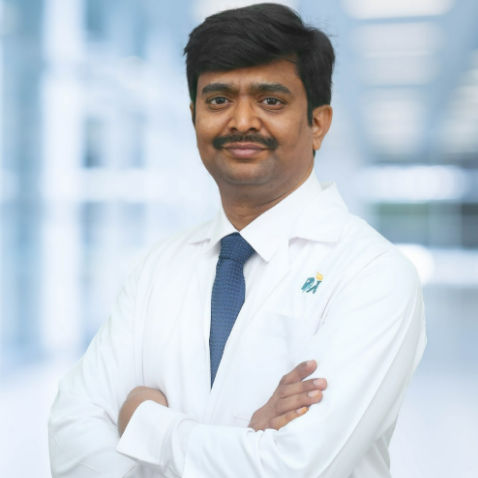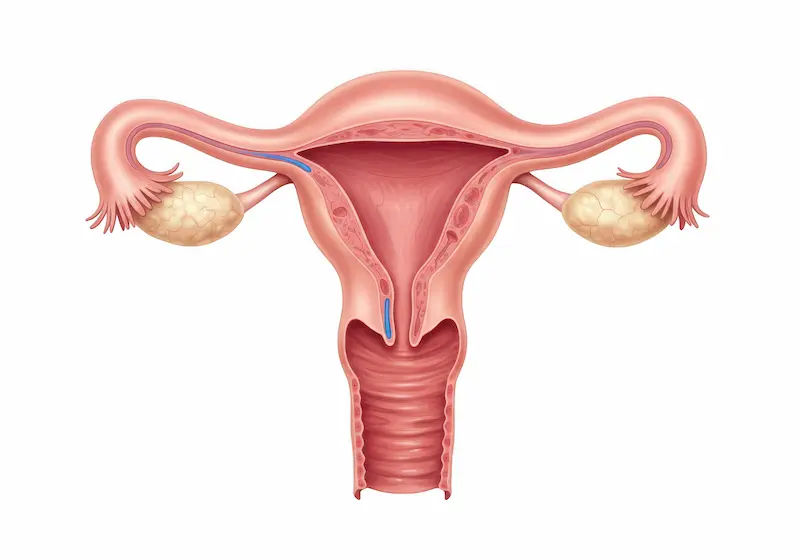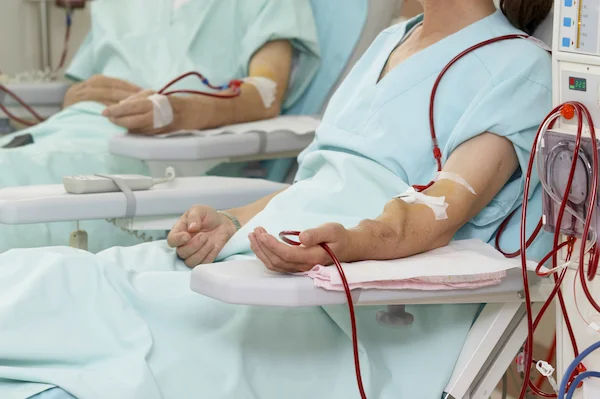Appendicitis Guide: Symptoms, Causes, and Treatment
Know all about appendicitis, symptoms, causes, treatment, what it is, diagnosis, risk, complications and more.

Written by Dr. Siri Nallapu
Reviewed by Dr. Dhankecha Mayank Dineshbhai MBBS
Last updated on 13th Jan, 2026

Introduction
A sudden, sharp pain in your abdomen could be appendicitis. This common medical emergency affects about 5% of the population, making it a leading cause of abdominal surgery worldwide. While the thought of a ruptured appendix is frightening, understanding the signs and acting quickly can make all the difference. Appendix is a small, finger-shaped pouch attached to your large intestine that becomes inflamed and filled with pus.
This comprehensive guide will walk you through everything you need to know about appendicitis.
What Is Appendicitis?
Appendicitis is the acute inflammation of the appendix. While the appendix was once thought to be a useless evolutionary remnant, however when it becomes blocked, it can quickly become a problem.
This blockage leads to increased pressure inside the organ, impedes blood flow, and allows bacteria to multiply rapidly. This process causes the appendix to swell, become infected, and, if not treated, can lead to rupture or perforation. It's most prevalent in people between the ages of 10 and 30, but it can technically occur at any age.
Consult a Gastroenterologist for Personalised Advice
Recognising the Signs: Appendicitis Symptoms
Early recognition of appendicitis symptoms is critical. The presentation can vary, but there is a classic pattern that many people experience.
The Classic Symptom Progression
The most telltale sign is abdominal pain that:
1. Begins around your navel. It often starts as a dull, hard-to-pinpoint ache.
2. Migrates to your lower right abdomen. Over several hours (usually 12-24), the pain shifts and localises to a specific spot called McBurney's point (midway between your navel and the top of your right hip bone).
3. Becomes sharp and severe. The pain intensifies with movement, deep breaths, coughing, sneezing, or being jostled. It often feels unlike any other pain you've experienced.
Accompanying this pain, you may experience:
Loss of appetite
Nausea and vomiting (often after the pain begins)
A low-grade fever that may worsen
Abdominal swelling or bloating
Inability to pass gas
Constipation or diarrhoea
Symptoms in Special Cases
The classic pattern isn't universal. Appendix pain location can differ based on anatomy.
Appendicitis in Children
Young children may not be able to describe the pain well. Look for signs like a curled-up posture, refusal to eat, unusual lethargy, and vomiting. The pain may be more widespread rather than localised.
Appendicitis During Pregnancy
The pain may be located in the upper right abdomen instead of the lower right, as the appendix is pushed upward by the growing uterus. This can make diagnosis more challenging, emphasising the need to report any abdominal pain during pregnancy.
What Causes an Inflamed Appendix?
The exact trigger isn't always clear, but the primary cause is believed to be an obstruction at the opening of the appendix. This blockage creates the perfect environment for bacteria to overgrow, leading to infection and inflammation.
The Role of Obstruction
This obstruction can be caused by:
Fecaliths: Hardened pieces of stool, which are the most common cause.
Lymphoid hyperplasia: Enlargement of lymphatic tissue in the appendix wall, often in response to an infection elsewhere in the body (like a GI bug or respiratory infection).
Foreign bodies or parasites: Rarely, things like swallowed seeds or intestinal worms can cause a blockage.
Tumours: In rare cases, a cancerous or non-cancerous growth can obstruct the appendix.
How is Appendicitis Diagnosed?
Diagnosing appendicitis can be tricky because its symptoms overlap with many other conditions. Doctors use a combination of methods.
The Physical Exam: Key Tests Doctors Use
Your doctor will press on your abdomen to check for:
Rebound tenderness: Pain that is worse when the doctor quickly releases pressure than when pressing down.
Guarding: An involuntary tensing of the abdominal muscles.
Rovsing's sign: Pain in the lower right abdomen when pressure is applied to the lower left side.
Imaging and Lab Tests
To confirm suspicion and rule out other issues, your doctor will order:
Blood test: To check for a high white blood cell count, a sign of infection.
Urine test: To rule out a urinary tract infection or kidney stones.
Imaging tests: An abdominal ultrasound is often used first, especially in children and pregnant women. A CT scan provides a highly detailed view and is the gold standard for confirming diagnosis in non-pregnant adults.
Appendicitis Treatment: What to Expect
The standard treatment for acute appendicitis is surgical removal of the appendix, known as an appendectomy. This is one of the most common emergency surgeries performed.
Surgery: Appendectomy
There are two primary surgical approaches:
Laparoscopic Appendectomy
This is the most common method. The surgeon makes several small incisions and uses a camera (laparoscope) and specialised instruments to remove the appendix. Benefits include less post-operative pain, a shorter appendix surgery recovery time, and smaller scars.
Open Appendectomy
This involves one larger incision in the lower right abdomen. It may be used if the appendix has ruptured, an abscess has formed, or the patient has had extensive abdominal surgery before.
Antibiotics: A Non-Surgical Option?
In some specific, uncomplicated cases, research shows that treatment with intravenous antibiotics alone can be effective. However, the recurrence rate is significant (up to 40% within a year). Therefore, surgery remains the definitive treatment for most patients to prevent future episodes and complications.
Risks and Complications of Appendicitis
The biggest risk of delayed treatment is a ruptured appendix. This is a life-threatening complication where the inflamed appendix bursts, spilling infectious material into the abdominal cavity.
The Danger of a Ruptured Appendix
A rupture can lead to:
Peritonitis: A severe and dangerous inflammation of the tissue lining your abdomen. This is a medical emergency requiring immediate surgery and powerful antibiotics.
Abscess: A pocket of pus that forms in the abdomen. Sometimes, a rupture is walled off by the body, creating an abscess. This may need to be drained before surgery can be performed.
The key to preventing these complications is seeking care at the first signs of lower right abdominal pain.
The Road to Recovery After an Appendectomy
Appendix surgery recovery time varies based on the type of surgery and whether the appendix ruptured.
Post-Op Care and Activity Restrictions
Laparoscopic surgery: Most people can go home within 24-36 hours. Full recovery typically takes 2-3 weeks. Avoid heavy lifting and strenuous activity for 3-5 weeks.
Open surgery: Hospital stay is often 2-4 days, with a full recovery taking 4-6 weeks.
Ruptured appendix: Recovery is longer, often involving a 5-7 day hospital stay on IV antibiotics, with a recovery period of 6 weeks or more.
Pain is managed with medication. It's important to get up and walk around soon after surgery to prevent blood clots and aid healing. Follow your surgeon's specific instructions on wound care and diet.
Can Appendicitis Be Prevented?
There is no proven way to prevent appendicitis. However, some observational studies suggest that a diet high in fibre from fruits, vegetables, and whole grains might lower the risk. The theory is that fibre prevents constipation and the formation of hard fecaliths. While not a guarantee, a high-fibre diet is beneficial for overall digestive health regardless.
When to Seek Immediate Medical Attention
Do not wait. If you or someone you know experiences abdominal pain that:
It is sudden and severe.
Begins near the navel and shifts to the lower right abdomen.
Worsens with coughing, walking, or making jarring movements.
It is accompanied by fever, nausea, vomiting, or loss of appetite.
Go to the nearest emergency room or call 911 immediately. Do not eat, drink, or use pain medications, as this can complicate diagnosis and surgery.
Conclusion
Appendicitis is a swift-moving and serious condition, but it is also highly treatable when caught early. Understanding the hallmark symptom, migrating abdominal pain, is your first and most powerful defense. While the prospect of emergency surgery is daunting, modern techniques like laparoscopy have made appendectomy a routine procedure with excellent outcomes and a relatively short recovery period. Seek medical evaluation immediately when required. Prompt action is the single most important factor in preventing complications and ensuring a smooth recovery.
Consult a Gastroenterologist for Personalised Advice
Consult a Gastroenterologist for Personalised Advice

Dr Bhargav Vuppumalla
General Physician/ Internal Medicine Specialist
5 Years • MBBS MD GENERAL MEDICINE
Bengaluru
Apollo Medical Center, Marathahalli, Bengaluru

Dr Harish K C
Gastroenterology/gi Medicine Specialist
15 Years • MBBS MD DM MRCP(UK) (SCE-Gastroenterology and Hepatology)
Bangalore
Manipal Hospital, Bangalore

Dr Harish K C
Gastroenterology/gi Medicine Specialist
15 Years • MBBS MD DM MRCP(UK) (SCE-Gastroenterology and Hepatology)
Bengaluru
Apollo Hospitals Bannerghatta Road, Bengaluru

Dr. Paramesh K N
Gastroenterology/gi Medicine Specialist
16 Years • MBBS, MS ( General Surgery), DNB ( Surgical Gastroenterology)
Hyderabad
Sprint Diagnostics Centre, Hyderabad

Dr Rohit Sureka
Gastroenterology/gi Medicine Specialist
15 Years • MBBS, DNB General Medicine, DNB Gastroenterology
Jaipur
Apollo 247 virtual - Rajasthan, Jaipur


.webp)

